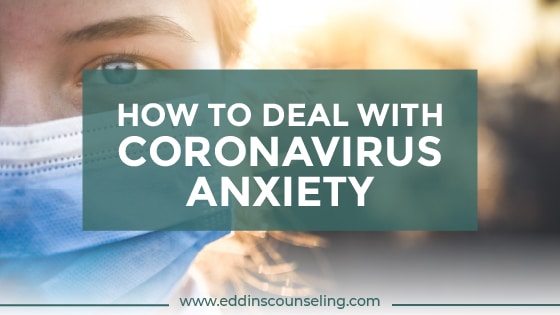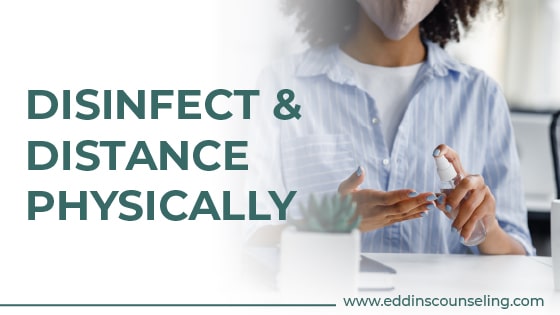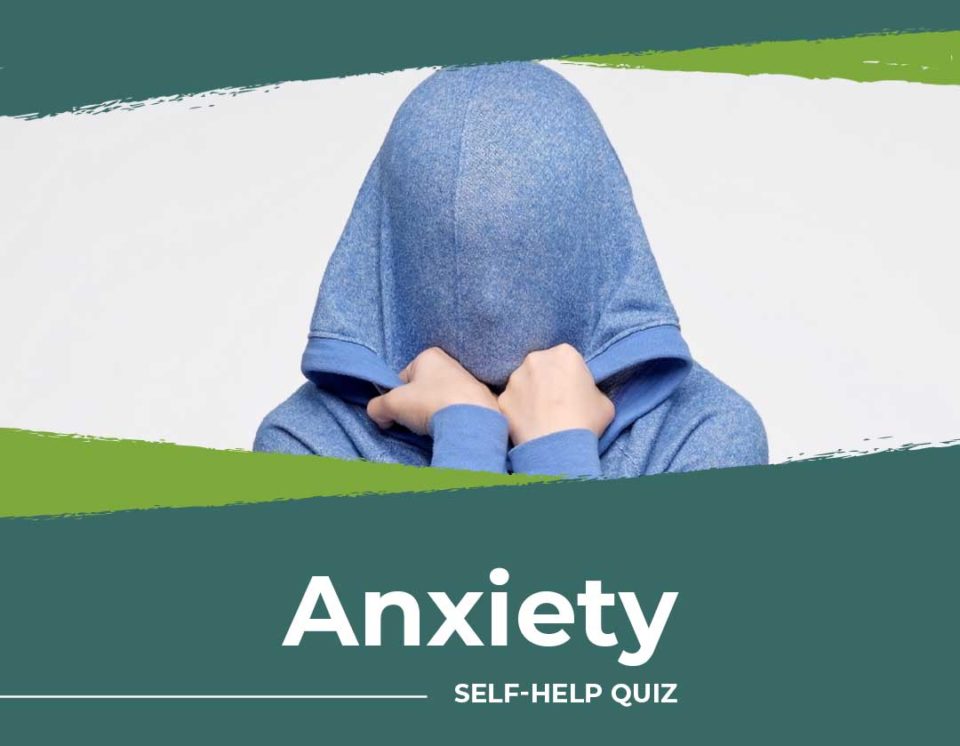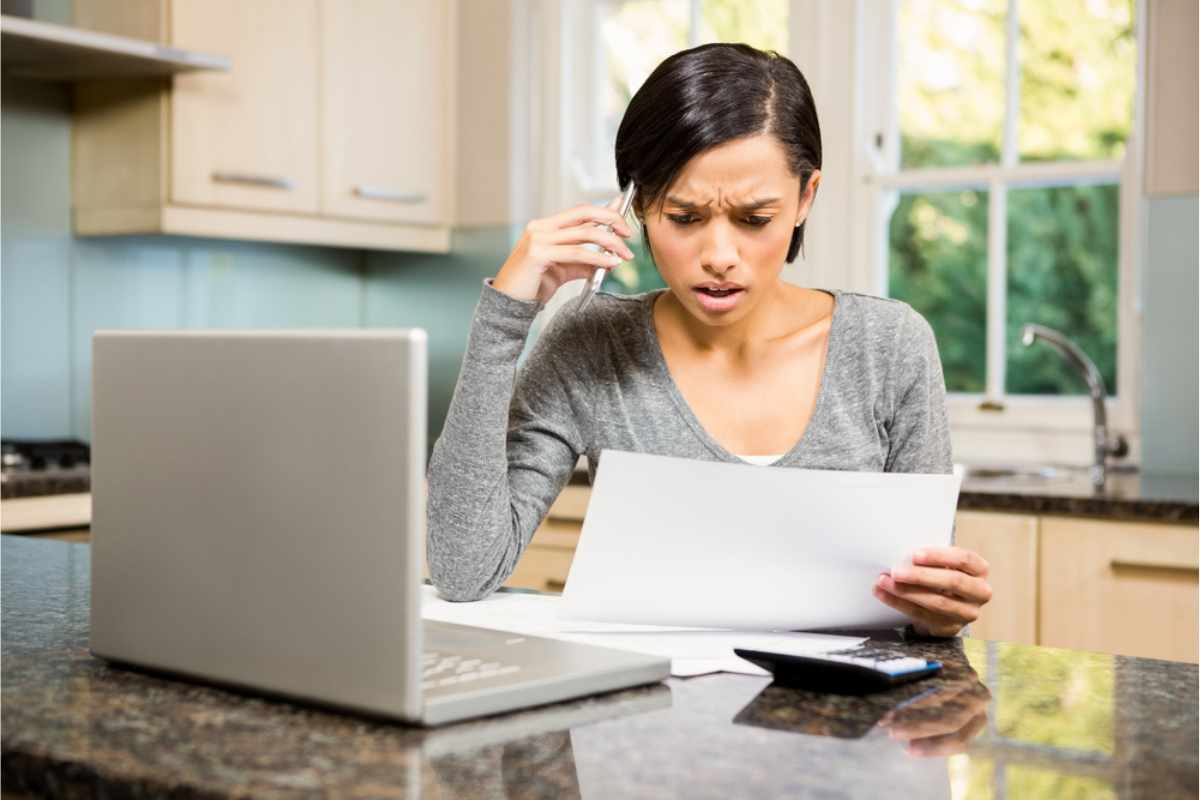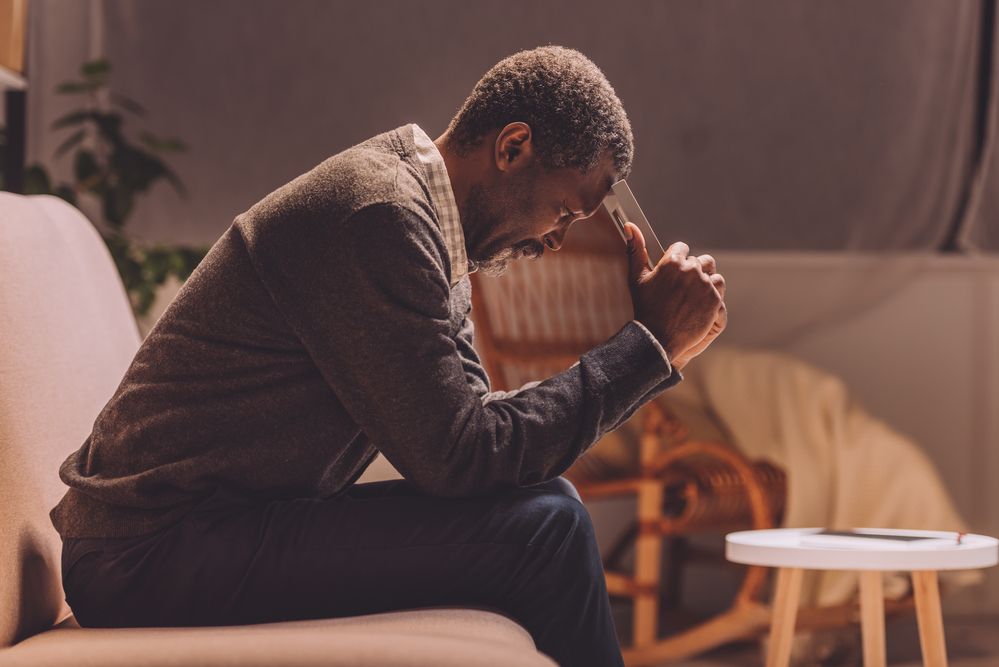February 1, 2021
Coronavirus Anxiety: How to Deal
Written by Sara Lane
Posted in Anxiety, Emotional & Mental Health and with tags: covid-19
We have been in the throes of a global pandemic for over a year now.
Due to this prolonged crisis state, you may be “used to it,” but that doesn’t mean COVID-19 or your anxiety is going anywhere.
As the coronavirus continues to spread, it’s easy to surrender to the fears of all the unknowns, along with social distancing and quarantine.
Today, people worldwide are experiencing an almost unprecedented amount of anxiety, stress, fear, and panic.
It is normal to experience such a storm of emotions when facing this crisis.
Our team at Eddins Counseling recognizes the ever-growing challenge of maintaining mental and emotional health during this difficult time. And we can be honest; this has been difficult.
Developing anxiety is not uncommon or illogical as there are so many unknown factors at any one time that we have to take into account and adjust to.
That being said, there are many effective ways to counter and cope with anxiety you may have developed and learn how to FACE COVID.
What is anxiety?
A short answer would be “worry,” but anxiety is more complicated than that. The National Institute of Mental Health says that “anxiety disorders involve more than temporary worry or fear” as it speaks to us, 24/7, via our inner voice. 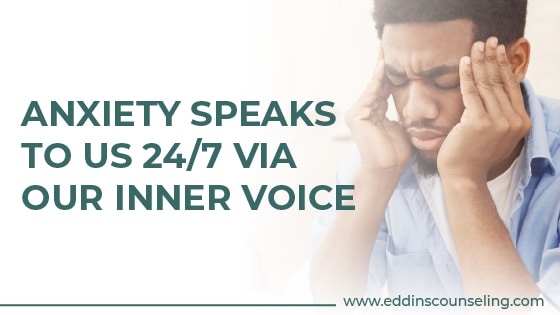
It tells scary stories about what might happen. Anxiety conditions us to dread uncertainty — even though uncertainty is a fact of life.
This paradox leads to:
- Feeling stuck in neutral.
- Unwillingness to delegate or ask for help
- All-or-nothing/black-and-white thinking
- Conjuring up worst-case scenarios
- Negative predictions, in general
- Erratic self-image
Symptoms of Anxiety
As a rule, therapists know that dealing with anxiety also involves dealing with a wide range of behavioral patterns.
There are many types of anxiety disorders but also many common symptoms. These often include:
- Loss of focus
- Poor concentration
- Fatigue
- Irritability
- Insomnia
- Nausea
- Racing thoughts
- Out of control worry
- Procrastinating
- Obsessing
- Avoiding
Obviously, none of these symptoms is easy to manage. The last three on the list bring with them a unique set of circumstances. When anxiety provokes procrastinating or obsessive behaviors, you become quite adept at excuse-making.
These excuses are used to “explain” why things could never work. Therefore, the only “logical” decision is not even to try.
Dealing with anxiety can make you a master of disguising self-sabotage as self-care.
At worst, we chalk up to perfectionism. These excuses can run rampant when the circumstances of the situation are out of your control, as it is during a global pandemic.
Physical Symptoms of Anxiety
People with anxiety disorders report that the physical symptoms of anxiety can show up in our bodies in many ways we are unaware of.
- You might feel that your heart is about to jump outside of your chest or pain in your chest.
- Digestive issues, including stomach pain or diarrhea.
- Intense sweating from your hand or palms
Why does this happen?
When you start to feel anxious, a system is activated that perceives something in your environment as a threat.
Our nervous system reacts, and your body starts getting ready to respond to take care of yourself with the fight or flight response.
This is a signal that transpires throughout the rest of our body, and your body starts reacting to become tense so you can actually fight or flee. This is called the sympathetic nervous system, and when it gets triggered, it does not discriminate.
So when it activates, it releases neurotransmitters throughout your body. That’s the response or the symptoms that we see in your heart, digestive system, or sweaty palms.
How to Deal with Anxiety: FACE COVID
Here we will utilize psychotherapist Dr. Russ Harris’s work to respond to our coronavirus anxiety by using the acronym FACE COVID. We highlight the importance of mindfulness, values, and action.
Understand that you can only work with what you have and start where you are, which is right here in this moment.
Avoidance, procrastination, and fear can rob you of the joys that lay just around the corner and interfere with daily activities.
Let’s start with:
F – Focus on What’s in Your Control
The way we react to the current crisis differs for everybody. As the virus spreads around our community, it’s natural to feel lost in fear and anxiety.
However, being overcome by these emotions is neither helpful nor useful. Instead, focus on what’s in your control.
There is no way to control how long the current situation will last or how our local and federal government responds. We also can’t just turn on and off our anxious feelings. You can, however, control your behavior, and that can make all the difference.
How can we control our behavior? It’s important to ground yourself when the storm of emotions swirl around.
A – Acknowledge Your Thoughts and Feelings
Acknowledge the thoughts, feelings, or emotions that are swirling inside you. It can also help to put these into words.
Say to yourself what you are feeling “My anxiety is extreme,” “This feels like grief,” “I feel like I’m getting sick.” It’s imperative to go through this step and while acknowledging these feelings…
C – Come Back into Your Body
Become aware of what’s happening in your body. Understand that this is an automatic response to coronavirus anxiety.
Your heart is beating so fast, but that does not mean you’re going to get a heart attack. Try to connect with your physical self and make use of the other section of your nervous system.
This is called the parasympathetic nervous system, which brings stillness, calm, tranquility to your body. Being able to activate this system can bring you back from a heightened state of anxiety.
There are many techniques to activate the parasympathetic nervous system. One of the easiest is using breathing techniques to bring calm. So as you find yourself in a high anxiety situation, start focusing on only your breath.
Follow your breath inside your body as it goes through your nostrils to the back of your throat, goes down your chest, and then goes down to your lungs. Imagine that you’re following it and expanding your lungs.
Then as you breathe out, say belly and follow with your mind the breath all the way back out.
Here are a few more approaches:
- Stretch a few muscles or shrug your shoulder back and forth.
- Breath in and out slowly
- Push your feet hard into the ground
E- Engage in What You’re Doing
Focus your attention on activity and engage in what you are doing. Try to focus on things you can see, hear, or smell.
Here are some examples:
- Find 5 things you can see around in the room you are in
- Notice 3 things you can hear
- Notice what tastes or smells are in your mouth and nose
It’s best to go through the ACE cycle a few times to really ground yourself in your reality.
These skills are instrumental not just in facing your Coronavirus anxiety but handling other difficult memories, ruminating thoughts, and even just focusing your attention on the task at hand.
Once you have attached yourself to the present moment, you can easily move on to the next steps: COVID.
C- Committed Action
Committed action means you are guided by your values and turn them into effective action. Once you have gone through the ACE technique and anchored yourself, you will feel more in control.
Think about what simple and realistic ways you can take care of yourself or your loved ones. Can you reach out to one of your extroverted friends having difficulty with social distancing through a phone call or video conference?
Try to help your spouse with dinner tonight. Whatever this may use your core values, turn it into committed action, and engage fully.
Use our Values Worksheet to get started.
O – Opening Up
Open up and make room for the hard feelings, but be kind to yourself. The crisis will continue to unfold, and the swirl of emotions will persist.
We can’t stop them from arising, but we can treat ourselves with compassion and open up about these feelings.
V – Values
Your values might include empathy, respect, loyalty, love, or humor. Find ways to include these values in your daily life and let them guide you into committed action.
Consider: What are ways you can treat yourself kindly as you get through this? What are ways my values can contribute (safely) to my community? What are the kind actions you can do for yourself?
Of course, while we are in isolation or social distancing, some things cannot be done, but you can still live your values in various ways.
I – Identify Resources to Counter Coronavirus Anxiety
Identify your resources for support. This, of course, includes your family and friends and identify your emergency services and healthcare professionals. Let your social network know that you are available for support just like they are for you.
It is also important to identify reliable and credible sources of news. The World Health Organization and Center for Disease Control both have reliable information and accurate updates on COVID-19.
Natural Supplements for Anxiety
First and foremost, these natural anxiety relief recommendations are by no means a substitute for counseling or psychiatric care if you are struggling with anxiety and depression symptoms.
The suggestions listed below as natural anxiety relief are for maintenance purposes only, not treatment.
If you are experiencing symptoms of anxiety and/or depression, it is strongly recommended that you consult FIRST with a psychiatrist to receive a thorough evaluation and plan to best assist you.
- L-Theanine (an amino acid found in green tea): Induces feelings of tranquility, used to reduce anxiety. May increase actions of blood pressure medications.
- Kava Kava: helps with anxiety, postmenopausal anxiety. Side effects include stomach upset, headache, dizziness, sedation, dry mouth. Do not use if you have liver toxicity.
- Calms Forte (homeopathic): Helpful for insomnia, especially if caused by “too much thinking.”
- Lavela (lavendar supplement): Helpful for reducing general anxiety and stress.
A Note on Natural Remedies for Anxiety
Depression and anxiety are very serious and very treatable!
Furthermore, depending on the nature of your symptoms, you might not be able to metabolize nutritional supplements effectively. Thus, the benefits would not be realized.
Contact a medical professional before trying any new natural anxiety relief supplements to determine your risks and how it may or may not benefit you. Side effects also occur with natural supplements.
Be sure you read all warning labels and documentation and consult a physician in Houston before trying any natural anxiety relief supplement in your diet
D – Disinfect & Distance Physically
We know this all over the news, but it’s important to repeat it. Practice good hygiene (washing your hands often) and social distancing.
However, physical distancing does not mean emotional distancing! Realize that these are truly compassionate actions and align them deeply with your values so you can effectively turn them into committed action.
Face your Coronavirus Anxiety with Help from A Therapist
As with any type of anxiety, facing your coronavirus anxiety often requires some guidance and teamwork. Coronavirus has many folks worried about their physical health — taking precautions, etc.
It is essential to equally prioritize your emotional health.
If you feel the anxiety is getting harder to rein in, help is suggested and available. Reach out to a therapist to get the counseling you need in these tricky times.
Together, you can conjure up ways to focus on what is within your control while accepting the rest. Many of us are in uncharted territory now, but that does not mean we cannot discover new paths to learn and grow amidst the uncertainty.
Next Steps
Finally, if you need help to treat anxiety and manage intense fear or worry, please reach out for a consultation today.
At Eddins Counseling Group in Houston, TX, we have many experienced therapists who specialize in anxiety treatment, even coronavirus anxiety. Online therapy is convenient and available. Please give us a call at 832-559-2622 or book an appointment online.
Follow Us on Social Media for Tips, Resources, and Live Interviews
We will continue to share resources to help you feel your best and cope with social distancing and coronavirus anxiety on social media. We offer regular live interviews and webinars for an emotional, relationship, career, and body wellness.
Follow us on Facebook, Instagram, LinkedIn, Twitter, or Pinterest.
5 Ways to Reduce Anxiety
Get instant access to your free ebook.
Grounding & Self Soothing
Get instant access to your free ebook.
Create Healthier Thoughts & Feelings
Get instant access to your free ebook.
Why You Feel This Way
Get instant access to your free ebook.

